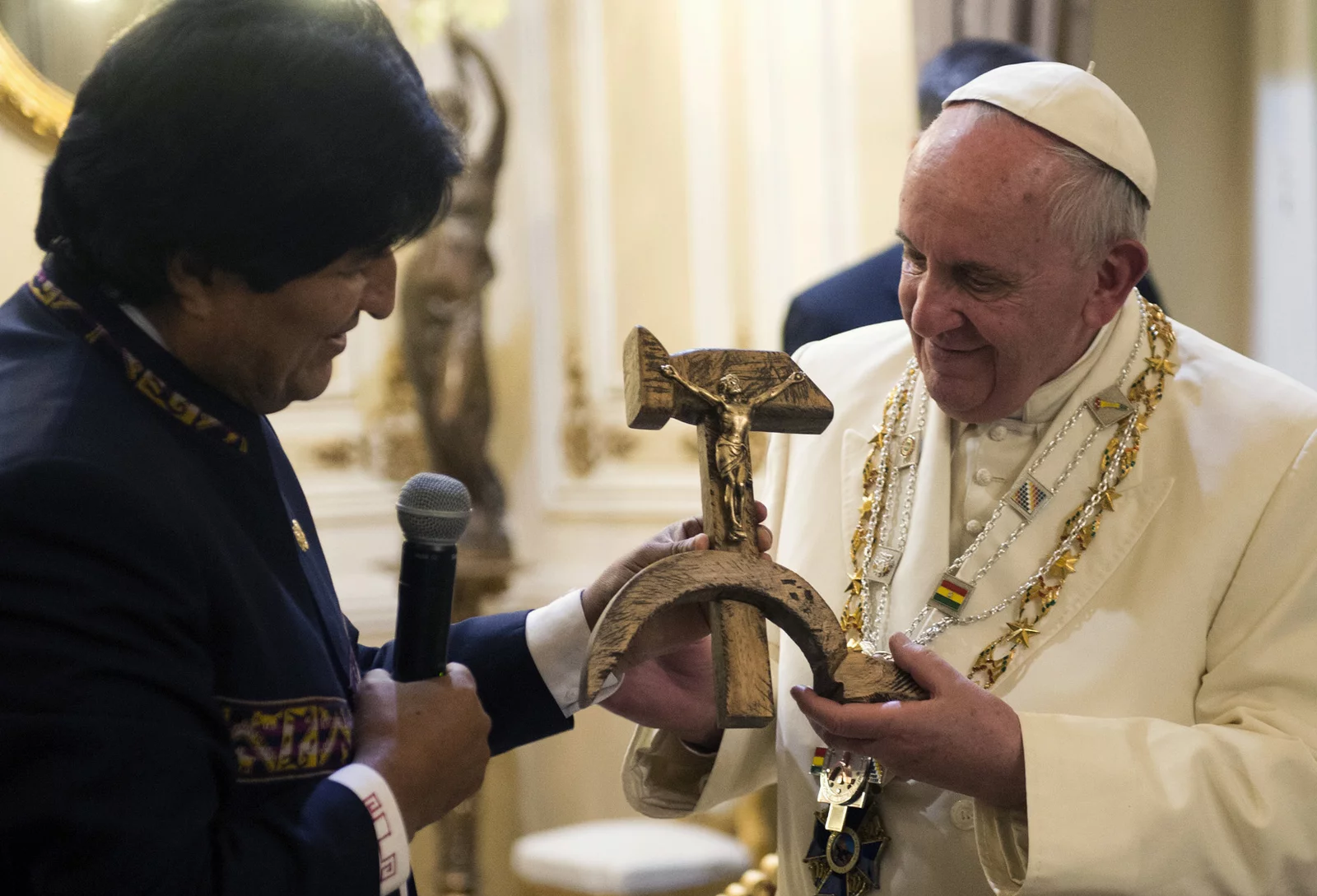- Feb 5, 2002
- 166,654
- 56,276
- Country
- United States
- Faith
- Catholic
- Marital Status
- Married
- Politics
- US-Others
The Church under Pope Francis has become infiltrated by the strange ideological connotations found among communist-sympathizing Liberation Theologians
In my book Status Envy: The Politics of Catholic Higher Education, there is a chapter titled “A Pope Away from a Perfect Life for the Jesuits.” The chapter documents in depressing detail the ways in which the Jesuits began to wage war with the pope following Vatican II. It describes how the 28 Jesuit campuses became the battlefields for a protracted war between the Jesuits and Pope John Paul II and Pope Benedict XVI. From heretical theologians to social justice warriors lobbying for LGBTQ+ clubs and activities and student access to contraception and insurance coverage for abortion, Jesuit campuses had become contested terrain for Catholic teachings.
Beyond these campuses, the Jesuit war on the papacy is well documented in a number of books and articles—including Passionate Uncertainty, which pointed out that most within the Jesuit Order “denigrated and deceived” each of the popes, disobeying them as they waited for each pope to die in the hope that the next pope would leave the Order with a free hand to accomplish their new, more worldly mission of social justice. Believing themselves to be just a pope away from a perfect life of freedom from doctrinal constraints, Rev. Paul Shaughnessy, S.J., observed in an article titled “Are the Jesuits Catholic?” published in The Weekly Standard in 2002 that “the Jesuits became papists who hate the Pope and evangelists who have lost the faith.”
This animosity toward the popedisappeared with the election in 2013 of one of their own Jesuit priests, Rev. Jorge Mario Bergoglio, S.J. As a Jesuit priest from Latin America, Pope Francis was at the epicenter of the earliest days of Jesuit resistance to the pope following Vatican II when a small number of Jesuit priests became involved in the propagation of a new, more liberating and empowering theology that coupled theology with sociology and a dominant concern for the “here and now” rather than eternal salvation. A longtime Jesuit commitment to missionary work in Latin America became redefined when the Jesuits began to view their mission in more worldly terms.
Continued below.

 crisismagazine.com
crisismagazine.com
In my book Status Envy: The Politics of Catholic Higher Education, there is a chapter titled “A Pope Away from a Perfect Life for the Jesuits.” The chapter documents in depressing detail the ways in which the Jesuits began to wage war with the pope following Vatican II. It describes how the 28 Jesuit campuses became the battlefields for a protracted war between the Jesuits and Pope John Paul II and Pope Benedict XVI. From heretical theologians to social justice warriors lobbying for LGBTQ+ clubs and activities and student access to contraception and insurance coverage for abortion, Jesuit campuses had become contested terrain for Catholic teachings.
Beyond these campuses, the Jesuit war on the papacy is well documented in a number of books and articles—including Passionate Uncertainty, which pointed out that most within the Jesuit Order “denigrated and deceived” each of the popes, disobeying them as they waited for each pope to die in the hope that the next pope would leave the Order with a free hand to accomplish their new, more worldly mission of social justice. Believing themselves to be just a pope away from a perfect life of freedom from doctrinal constraints, Rev. Paul Shaughnessy, S.J., observed in an article titled “Are the Jesuits Catholic?” published in The Weekly Standard in 2002 that “the Jesuits became papists who hate the Pope and evangelists who have lost the faith.”
This animosity toward the popedisappeared with the election in 2013 of one of their own Jesuit priests, Rev. Jorge Mario Bergoglio, S.J. As a Jesuit priest from Latin America, Pope Francis was at the epicenter of the earliest days of Jesuit resistance to the pope following Vatican II when a small number of Jesuit priests became involved in the propagation of a new, more liberating and empowering theology that coupled theology with sociology and a dominant concern for the “here and now” rather than eternal salvation. A longtime Jesuit commitment to missionary work in Latin America became redefined when the Jesuits began to view their mission in more worldly terms.
Continued below.

Pope Francis Is the Pope He Was Waiting For
The Church under Pope Francis has become infiltrated by the strange ideological connotations found among communist-sympathizing Liberation Theologians.
